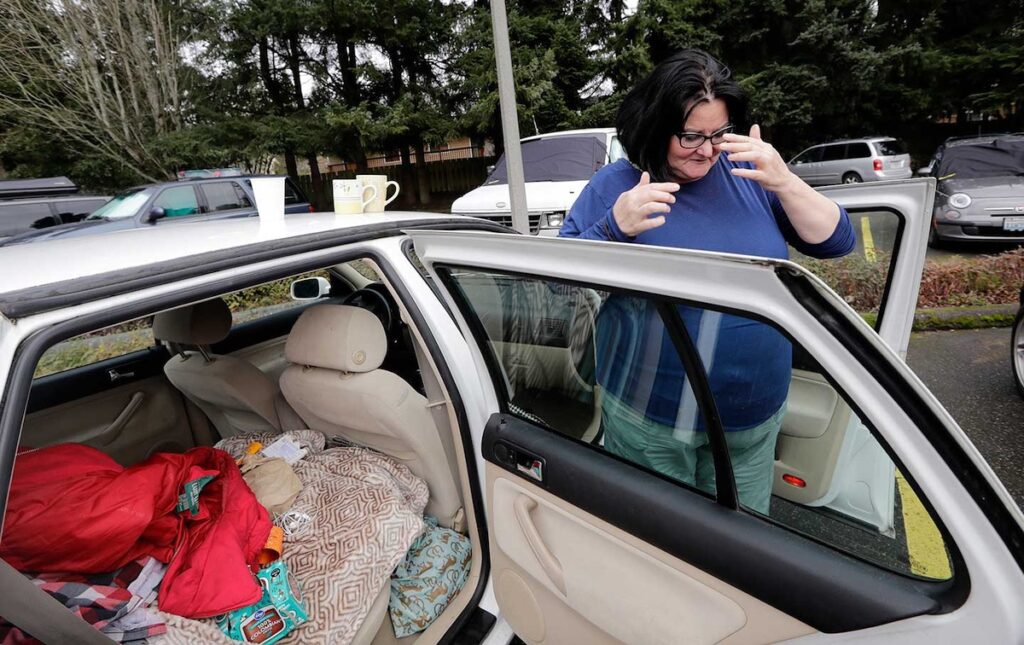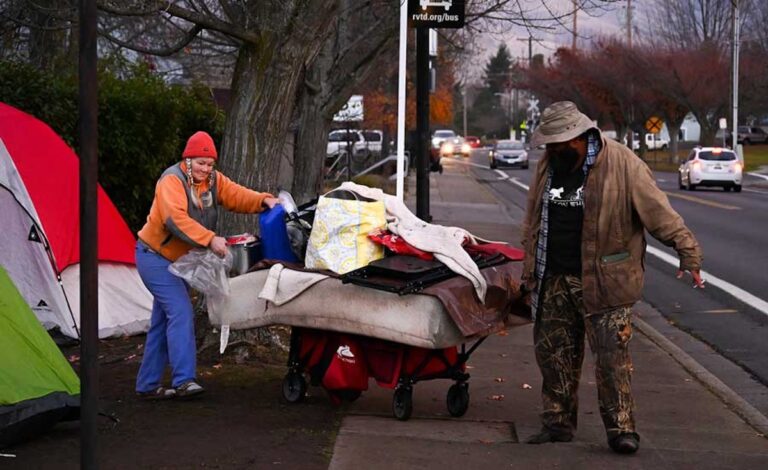The recent controversy that resulted in the City of Ashland rejecting funding to provide much-needed shelter beds, in combination with the City’s adoption of a legally questionable “camping ordinance” highlights a sad reality for people without homes in 2024. With large crowds and public testimony on both sides of the issues, the City Council took decisive actions that illuminate Council members’ values.
A new report titled, “Finding Home: A True Story of Life Outside” provides a myriad of perspectives brought forward through more than 300 interviews conducted by Ashland’s former mayor, Julie Akins. The report, sanctioned by AllCare Oregon, includes intimate stories of individuals and families living outside and in shelters, and recommendations for reform. It also points to compelling studies indicating that the method used to measure the number of people experiencing homelessness in rural areas (PIT surveys) grossly underestimates the reality on the streets, by as much as half.
Each year in Southern Oregon the number of people unable to afford housing has continued to rise, even with the more than 25 effective organizations and hundreds of millions of dollars allocated to fix the issue. While not a simple problem, rising rents, inflation and low wages seem to be the primary cause for most people living in their cars, in tents, or, if possible, in a dignified shelter.

On April 22, 2024, the US Supreme Court is scheduled to hear an appeal by the City of Grants Pass on whether the City violated unhoused peoples’ Constitutional rights after facing criminal charges for sleeping outside – when all of the shelter beds were full. Attorneys for the plaintiffs in the case known as Grants Pass v. Gloria Johnson and John Logan et al. just submitted a 78-page emeritus brief to refine arguments.
After the 9th Circuit Court of Appeals ruled with the unhoused community, the City of Grants Pass appealed it to SCOTUS, who will have the final say on the matter. After another lawsuit in Medford failed to prove unconstitutional actions by the City at a lower court for similar claims, the reach of the Grants Pass v Johnson case is somewhat unknown. It will, however, shed light on how far the US justice system will allow municipalities to go, when it comes to criminalizing homelessness.
In Jackson County, tremendous efforts are underway to find more comprehensive approaches to providing services for housing and shelter – including 24 agencies and many members of the Governing Board the Jackson County Consortium of Care. In Ashland, hard working members of the Housing Services Masterplan Subcommittee are working to fulfill a June deadline to present a ‘master plan’ that can guide policy and priorities to support improved housing justice in the City.
With all of this going on, staff and volunteers at public, private, and nonprofit agencies work diligently to illuminate the scale of the housing crisis in Southern Oregon and provide resources to those in need. Speakers at a recent Homelessness Summit in Ashland covered a lot of the achievements and challenges and can be viewed here. ACCESS, OHRA, Rogue Retreat, Judi’s Midnight Diner, and the Medford Gospel Mission are only a handful of the agencies, churches and grassroots efforts working day and night to support the growing number of houseless people in our region.


